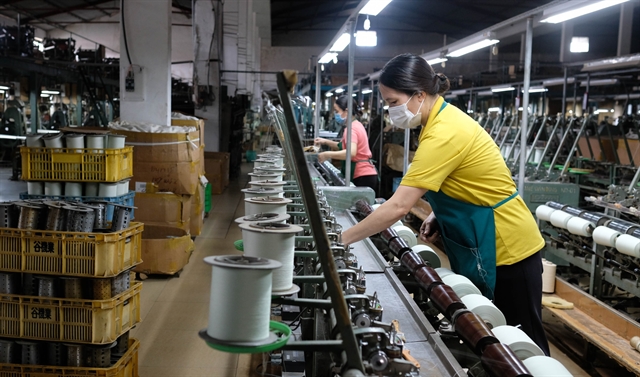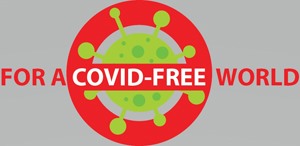 Society
Society

It has not been easy at all for the Việt Nam’s Government to walk the talk of the country's dual-target strategy, pursuing socio-economic development while keeping the spread of the novel coronavirus in check. But the Prime Miniser and his cabinet have been striving to secure the country’s economic health by doing all they can to support businesses operating in Việt Nam.

|
| Workers at Việt Silk Company. The Government has issued a number of resolutions and decisions, including credit support, tax extensions along with policies to support employers and employees. VNA/VNS Photo |
Thu Vân
Data from the General Statistics Office (GSO) showed that in August, the number of firms leaving the market was higher than newly-established ones. In the first eight months of this year, there were 81,600 newly-established firms, but up to 85,500 left the market.
On average, nearly 10,700 companies left the market each month.
Faced with such facts, Prime Minister Phạm Chính earlier this week decided to hold a meeting with the business community and leaders of localities to discuss support for enterprises.
It has not been easy at all for Việt Nam’s Government to walk the talk of the country's dual-target strategy, pursuing socio-economic development while keeping the spread of the novel coronavirus in check.
But the Prime Minister and his cabinet have been striving to secure the country’s economic health by doing all they can to support businesses operating in Việt Nam.
While all businesses are having to pivot and find ways to adapt to keep their companies alive, the Government, for their part, has rolled out a number of policies to support businesses and workers affected by the pandemic.
Resolution 105/NQ-CP, which was issued on September 9 and went into effect on that date, covers a wide range of aggressive support for the business community.
The resolution, which aims to support and resolve issues related to production, business operations, looks at supporting enterprises in the form of credit support and tax extensions along with policies to support employers and employees.
It also eases regulations for issuing, extending, and certification of work permits for foreign workers in Việt Nam.
Resolution 105 also requests authorities to temporarily suspend unnecessary audits of businesses to a later time for those which were planned in 2021.
The Government has also issued Resolution 116/NQ-CP to assist workers and their employers, according to which some US$1.3 million will be spent to support workers and employers who have participated in the unemployment insurance fund.
The Government has also required Việt Nam Electricity, the country's main power provider, to offer a 10 per cent cut on power bills for cities and provinces that have had to go under lockdown. Several other major support policies are decrees 52, 54, 80 to provide additional support to businesses with land-use fee reduction, tax payment deadline extension and assistance for small-and-medium-sized enterprises (SMEs).
From the early days of the COVID-19 outbreak, the Government and the Prime Minister have organised a series of meetings with both local and foreign-funded enterprises to learn about their difficulties and recommendations in order to devise proper support measures.
The meeting on September 26 was held on an even bigger scale: the Prime Minister invited all members of his cabinet, authorities of all 63 provinces and cities nationwide, and the representatives from all economic components, big firms, small firms, and even small-sized agriculture co-operatives.
“We will listen to enterprises’ concerns and recommendations. We need to hear opinions when things get difficult, especially critical ones so that we could sit down and talk and come to a consensus,” the leader of the Government said at the meeting.
At the meeting, Chính said the Government needed to work with businesses in the spirit of honest thought, honest recommendation, action, and effectiveness when it comes to the difficulties faced by the enterprises.
Such dialogue and the measures stated in the Government’s resolutions mentioned above is the evidence that the Government is willing to listen, and it has strong intention to bring the economy back on its feet from the pandemic.
Real actions
The Government has also set up a special working group to address difficulties the COVID-19 outbreak has caused to businesses and people, with members of the group made up of leaders of ministries and sectors.
When many enterprises complained about the huge cost of COVID-19 testing for their staff during business activities, the Government has asked the Ministry of Transport to work on the matter.
The Association of Transport under the transport ministry had worked with the health ministry to relax rules on water transport, and the transport ministry issued at the time a document asking localities to annul all regulations that are against the spirit of the Government in facilitating goods transport during the pandemic.
Working group 970, which was set up to ensure no disruption is caused to the country’s agriculture products supply chains, has tackled the problem of congested agriculture products in the southern provinces. It has connected 1,400 agriculture co-operatives with consumption points.
The Ministry of Agriculture and Rural Development has also worked closely with the Ministry of Trade and Industry to address problems arising at border gates after China applied many changes in goods import policies. Deputy Minister of Trade and Industry Trần Quốc Khánh said thanks to aggressive efforts, Việt Nam’s agriculture exports in 2021 might increase by 10 per cent.
“We have been able to maintain production in the north and the central region, We have been able to ensure the flow of goods exported. And in the most difficult times, we have been able to make sure sea ports in HCM City operate safely,” Khánh said.
With such efforts and determination, despite COVID-19, foreign investors’ new capital registered in Việt Nam reached US$22.15 billion in the first nine months, up 4.4 per cent compared to the same period last year.
The country’s pandemic hotspot HCM City finally resumed economic activities yesterday.
All inner-city checkpoints have been removed and people can now travel without a paper permit within the city.
Public and private medical hospitals, food and drink for delivery or takeaway only, indoor hairdressing salons, traditional markets, wholesale markets, shopping centres and museums, can now resume their operations, even though with some restrictions.
The fight against the pandemic is still long and arduous, but we are starting to see good signs. Just as the number of discharged patients has exceeded the number of hospitalised patients in HCM City, it's for sure that the country's economy will be recovering. We have fought the pandemic with limited healthcare capacity, limited experience and limited resources, we might find it hard to get back on track, and getting back on track will take time, but a right kind of policy mix could push the rebound towards a full recovery, eventually. VNS

|




